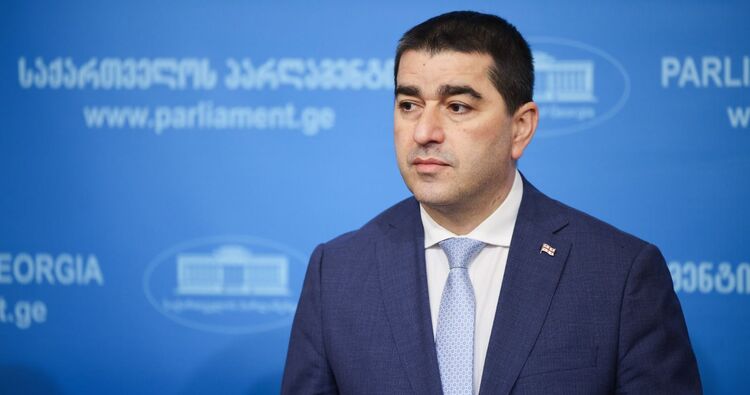Georgian Parliament Speaker: Latvian, Estonian, Icelandic, Lithuanian foreign ministers shared “concerns” on foreign transparency law in meeting

The Parliament Speaker added the Georgian side’s “main message” for the meeting was to have a “relationship based on mutual respect”, adding the visiting foreign officials “understand the concerns the Government has”. Photo: Georgian Parliament
Georgian Parliament Speaker Shalva Papuashvili on Wednesday said visiting foreign ministers of Latvia, Estonia, Iceland and Lithuania had offered “some concerns” about the newly adopted controversial law on transparency of foreign influence in a meeting on Wednesday.
Papuashvili said the Georgian side in the meeting had “explained the basis of the law”, including funds of the European Union and its member states’ taxpayers being “partly spent in Georgia in a non-transparent manner [and] not for the purposes for which they should be spent”.
By the way, we have received approval from various representatives of the European Union, and they agree with our opinion that there is indeed a problem of transparency, so we reported this to our colleagues. Among them, we told them that it is in their hands to eliminate these challenges and problems, since the money of their citizens is partially spent in Georgia in a non-transparent manner”, he said.
Today, speaking internally, we all agreed that we did the right thing by not listening to our European colleagues when [Georgia] did not impose sanctions [on Russia for its military aggression against Ukraine], [and when] we did not listen to our European colleagues and released [the imprisoned former President] Mikheil Saakashvili - we turned out to be right, and they turned out to be wrong”, the lawmaker claimed.
The Parliament Speaker added the Georgian side’s “main message” for the meeting was to have a “relationship based on mutual respect”, adding the visiting foreign officials “understand the concerns the Government has”.
The legislative piece calls for the registration of non-commercial legal entities and media outlets in the country as “pursuing the interests of a foreign power” if they derive more than 20 percent of their funding from abroad.
It requires groups “considered to be an organisation pursuing the interests of a foreign power” to be registered in the public registry with the status and publicise their received funding.
The draft law was supported by 84 MPs in the 150-member lawmaking body on Tuesday, with 30 voting against.
President Salome Zourabichvili on Sunday said she would veto the bill, however the ruling party has enough votes to override her veto in the Parliament.
 Tweet
Tweet  Share
Share